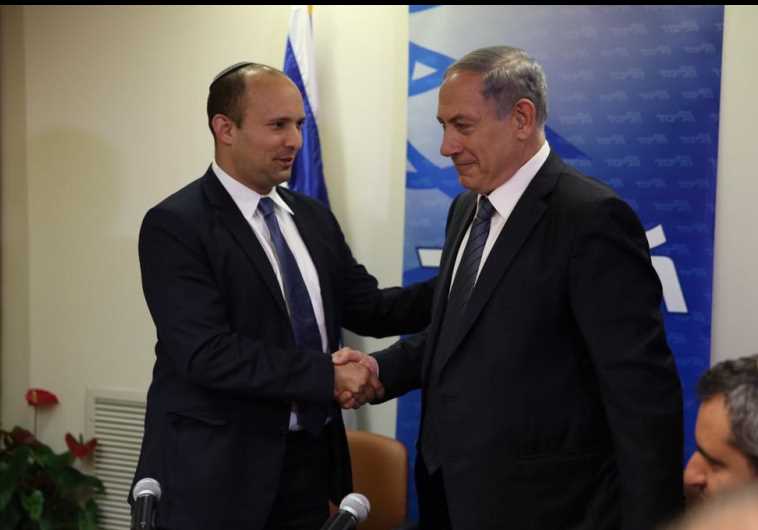Netanyahu, Bennett top list of dignitaries attending anti-Semitism global forum
Jewish leaders and international officials convene in Jerusalem beginning tonight.
 Prime Minister Benjamin Netanyahu (R) shakes hands with Bayit Yehudi chief Naftali Bennett(photo credit: TWITTER / TAL SCHNEIDER)
Prime Minister Benjamin Netanyahu (R) shakes hands with Bayit Yehudi chief Naftali Bennett(photo credit: TWITTER / TAL SCHNEIDER)